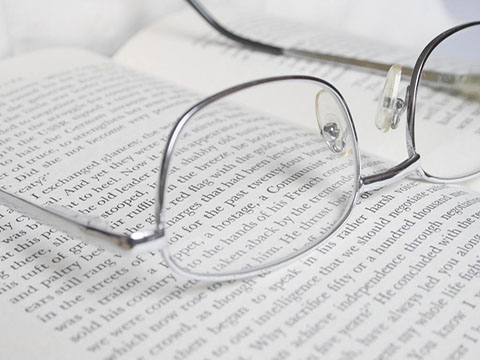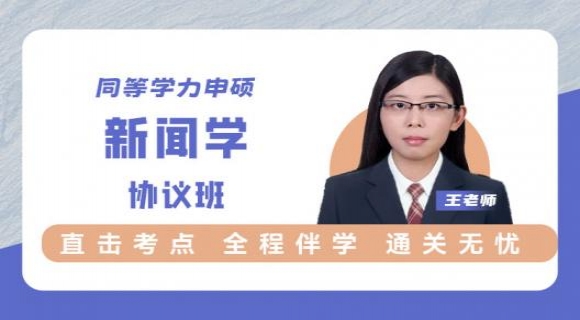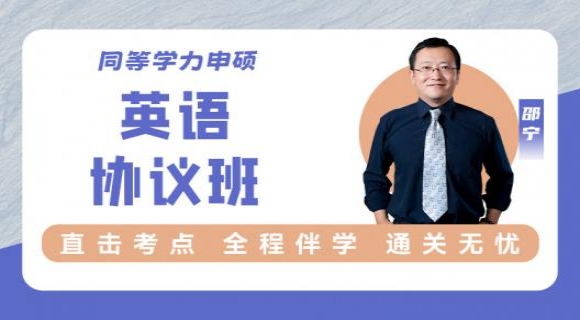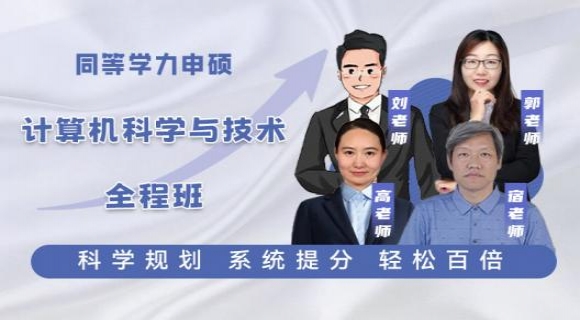Part I Dialogue Communication (15 minutes, 15 points)
Section A Dialogue Completion
Directions: In this section, you will read 5 short incomplete dialogues between two speakers, each followed by four choices marked A, B, C, and
D. Choose the answer that best suits the situation to complete the dialogue. Mark your answer on the ANSWER SHEET with a single line through the center.
1. Speaker A: I would like to see Prof. Adams, please.
Speaker B: __________
A. Where are you from?
B. He is happy now, and he wants to see you.
C. Do you have an appointment with him?
D. No. He is free and he will be glad to see you.
2. Speaker A: I need a book, Critical Review on Nineteenth Century for History 312.
Speaker B: __________
A. History books can´t be taken out of the library.
B. History books are highly recommended here.
C. It is a reserved book, and you can read it here only.
D. It has been translated into English already.
3. Speaker A: Ground Hotel. May I help you?
Speaker B: __________
A. Sorry. I don´t think you are helpful.
B. Yes. We need three single rooms for this weekend.
C. Thank you. I´d like to make a long distance call to Shanghai.
D. All right. Here is your single room.
4. Speaker A: May I see your driver´s license, please?
Speaker B: Sorry. I didn´t see that sign. __________
A. All right. I haven´t done anything wrong.
B. Well. What´s the matter?
C. No. But I was driving at 65 miles per hour.
D. Here you are.
5. Speaker A: Excuse me. Could you show me the way to the nearest post office?
Speaker B: ________
A. OK. I´d like to go with you.
B. No problem. It´s my pleasure to direct you.
C. Sorry. I´m busy now. Go away.
D. Of course. Go down this street and turn left.
Section B Dialogue Comprehension
Directions: In this section, you will read 5 short conversations between a man and a woman. At the end of each conversation there is a question followed by four choices marked A, B, C, and
D. Choose the best answer to the question from the four choices give and mark your answer on the answer sheet with a single line through the center.
6. Man: I was always surprised to see Tom using that tape recorder you were going to throw away.
Woman: Yes, it´s very old. That he got it to work amazes me.
Question: What does the woman say about Tom?
A. He fixed the tape recorder.
B. Although old, he is still working.
C. His love for music surprised the two speakers.
D. He picked up the tape recorder from the garbage can.
7. Woman: I can´t wait to see the look on Mary´s face when she opens our gift.
Man: Neither can I.
Question: What does the man mean?
A. He can´t imagine what his friends got for him.
B. He always knows what Mary will say.
C. He is anxious to see Mary´s reaction to the gift.
D. He is too busy to wait.
8. Woman: If these prices get any higher, I´ll have to go on a diet.
Man: You should anyway.
Question: What does the woman tell us?
A. She will continue with her diet.
B. She might die any day.
C. She can´t afford expensive food.
D. She is overweight.
9. Man: Does everything look right to you? I want it to be perfect.
Woman: I think you´ve made a mistake. The napkins go on the left and the silverware on the right.
Question: What are they talking about?
A. Laying the table.
B. Polishing silver.
C. Sewing napkins.
D. Putting the food away.
10. Woman: Tom, I´m glad I ran into you. I´ve been trying to call you but you´re never home. Where have you been hiding lately?
Man: Actually I´ve been very busy recently. I´m getting ready to go to the States for Christmas, and I have a million things to do.
Question: Why couldn´t the woman get the man on the phone?
A. Because he has been hiding lately.
B. Because he has been busy preparing his trip.
C. Because he has been back home.
D. Because he has to work hard for traveling expense
Part II Vocabulary and Structure (20 minutes, 10 points)
Directions: There are 20 incomplete sentences in this section. For each sentence there are 4 choices marked A, B, C, and
D. Choose the one that best completes the sentence. Mark your answer on the answer sheet with a single line through the center.
11. The science of medicine, we owe a great deal, is perhaps the most important of all the sciences.
A. in which
B. to which
C. at which
D. for which
12. Students at colleges in large cities ran into debts because it was easier for them to find part-time jobs than those in rural areas.
A. few
B. fewer
C. little
D. less
13. The woman does not mind in the bedroom.
A. her husband´s smoking
B. her husband´s smoke
C. her husband to smoke D her husband to smoke
14. I realized that she was the woman the world event on yesterday´s TV program.
A. reported
B. having reporting
C. to report
D. reporting
15. Mary told me that you were going to make a long journey to Australia, ?
A. didn´t you
B. weren´t you
C. wouldn´t
D. hadn´t you
16. , we turn on the air-conditioner.
A. It is a hot day
B. Being a hot day
C. It is being a hot day
D. The day being hot
17. No sooner had we reached the railway station it started to rain.
A. when
B. while
C. then
D. than
18. Accustomed to climbing trees, .
A. I had no difficulty reaching the top
B. reaching the top was not hard to me
C. the top was not difficult for me to reach
D. to reach the top was not a problem for me
19. Peter likes watching TV to the cinema.
A. more than to go
B. more than going
C. than going
D. rather than to go 21.
20. It was the training that he had as a young man made him such a good engineer.
A. has
B. later
C. which
D. that
21. To my great surprise the food was still on the table, .
A. untouching
B. no touch
C. untouched
D. not to be touched
22. The power was _________ by him, and many innocent people were punished.
A. behaved
B. abused
C. betrayed
D. bargained
23. They have agreed that they will ________ in the policy and will not change it.
A. commit
B. persist
C. combine
D. collapse
24. The police have the _______ proof of his guilt in murdering the woman.
A. brutal
B. blank
C. beneficial
D. absolute
25. Both sides have agreed that any ________action must be turned into peace.
A. accidental
B. aggressive
C. abstract
D. adequate
26. The country which was hit by earthquake ________ to the United Nations for aid.
A. accelerate
B. cherish
C. appeal
D. characterize
27. The company has to _________ the benefits against the costs in the last three months.
A. boast
B. blame
C. block
D. balance
28. Many people there try to __________ that shop because of its unreasonable prices.
A. stay away from
B. brand
C. keep in contact with
D. bury
29. It took the old lady almost three months to her illness.
A. get over
B. go over
C. get through
D. go through
30. It´s beyond any doubt that human beings cannot a nuclear war.
A. endure
B. maintain
C. survive
D. sustain
Part III Reading Comprehension (40 minutes, 40 points)
Directions: There are 4 passages in this part. Each of the passages is followed by 5 questions or unfinished statements. For each of them there are 4 choices marked A, B, C, and
D. Choose the best one and mark your answer on the ANSWER SHEET with a single line through the center.
Passage One
When Columbus reached the New World, corn was the most widely grown plant in the Americas. This plant´s range extended from what is now southern Canada to lower South America. At that time some tribes cultivated it at sea level, others at elevation of more than 11,000 feet.
“Columbus had no way of knowing that corn was far more valuable than the spices (香料) and gold he had hoped to find.” said Frances
B. King, a professor at a university of Pittsburgh. Through human intervention, this plant has developed into several hundred races, or varieties. Their heights vary from 2 to 12 feet, and their maturity ranges from little more than 2 months to almost a year. Their ears vary not only in color, but also in size.
Unlike other cereals (谷类), corn bears little resemblance to its wild ancestors. In fact, it differs from the appearance of its immediate ancestors more than any other cultivated plant known. From humble origins as a lowland grass, corn developed into the western world´s important grain. As its high yields allowed communities to grow far beyond what early agriculture could feed, most scientists viewed corn as having largely fueled pre-Columbian growth and civilization.
Now, new findings are greatly altering researchers´ notions about the time when corn revolution occurred. New dates for its emergence from Mesoamenrica do not support the widely held view. The evidence now suggests that the signs of corn in Americas can date back 5,500 years at least.
31. The first paragraph states that corn _____.
A. was mainly grown at sea level
B. was not grown below the elevation of 11,000 feet
C. was widely grown in Canada only
D. spread throughout Americas
32. The second paragraph implies that _____.
A. the purpose of Columbus´ exploration was to discover corn
B. corn was one of Columbus´ discoveries, but more precious than anything else
C. Columbus knew corn so well that he brought back to Europe at once
D. corn was the only Columbus´ discovery that was remembered
33. According to the passage, some varieties of corn can _____.
A. ripen little more than 2 months
B. last little more than 2 months
C. stay fresh for almost a year
D. stay alive from 2 months to almost a year
34. Corn helped the early communities to grow because _____.
A. it was easy to digest
B. it had a lot of varieties
C. it could produce high yields
D. it could last long
35. The widely held view was challenged by _____.
A. a new revolution
B. new findings about corn
C. the signs of corn 5,500 years ago
D. new dates for communities´ emergence













